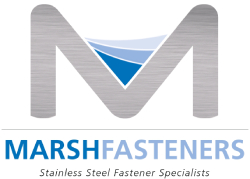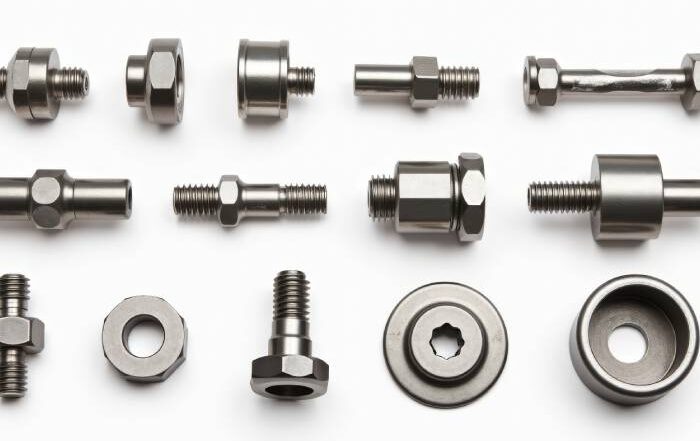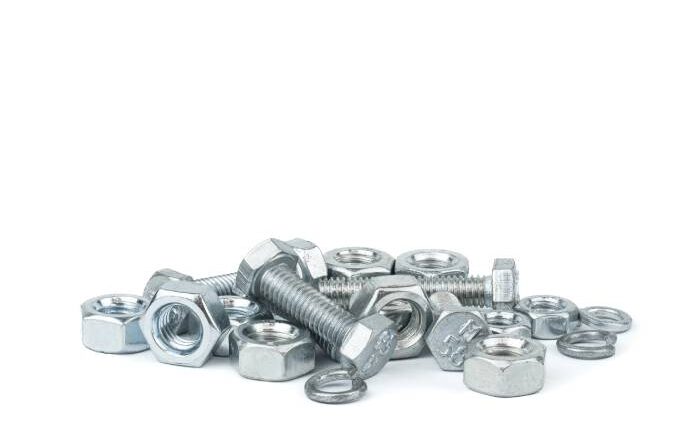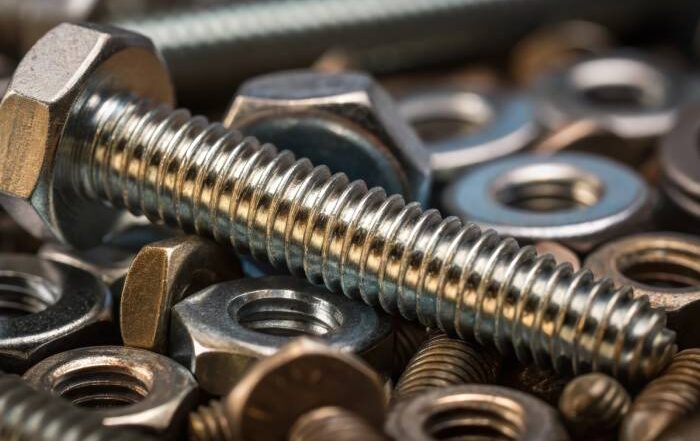
If you have ever browsed through our online store, or even the shelves of your local hardware store, you may have noticed the sheer variety of types of fasteners available. Do you know what all of them are, and which of them are best suited to specific projects? To help you identify the different types of stainless steel fasteners, we have prepared this handy guide. From screws to nails and rivets to U-bolts, this list will help you ensure that you always know precisely which fastener to choose, whatever project you may be working on.
Nails
Let’s start with the simplest fastener type: the nail. Although they come in several varieties, from roofing nails to ring shank nails, or straightforward carpentry nails, these fasteners are all characterized by the fact that they are straight, usually unthreaded, have flat heads, and are inserted by hammering.
Nuts and bolts
Bolts are probably the most common type of fastener. They are used to hold unthreaded components together and work in tandem with nuts. They have external male threads on one end and a hexagonal head and are tightened using a wrench. Because nuts are used with unthreaded components and, unlike screws, don’t provide holding power by way of their thread, they need to be installed with the aid of a nut. Nuts are ringlike fasteners that are attached to the ends of bolts. The different types of bolts include hex-head bolts, eye bolts, carriage bolts and u-bolts.
Screws
Screws are similar to bolts. They also have a male thread that starts right at the tip and usually covers the entire length of the screw. The heads of screws can come in many shapes and sizes, and there is an astonishing array of screws for all kinds of projects and materials. Unlike bolts, screws rely on their threads to maintain their hold. Most screws are self-tapping, meaning that they cut a thread into the material as they are screwed in. Among the many different types of stainless steel screws available are wood screws, deck screws, hex lag screws, self-drilling screws, and machine screws.
Rivets
Rivets are permanent fasteners that can be used to fasten all kinds of materials. They are incredibly lightweight and have a low profile against the surface of the material being fastened. Holes do not need to be threaded when rivets are used, but a special gun – a pop riveter – has to be used for application. Once a rivet is in place, it forms a permanent bond and cannot be removed. Rivets are preferred fasteners for the aerospace industry.
Washers
Washers are rings that are used in conjunction with nuts and bolts, being placed under the heads of nuts, joints or axle bearings. They are used for several different purposes, such as to alleviate friction, to allow more even distribution of pressure from the nut on the fastened component, to eliminate leakage, isolate components or prevent loosening due to vibration.
Anchors
Anchors are mainly used to secure steel to concrete or to materials such as epoxy or polyester resin. They work by transferring tensile force to the substrate (i.e., the concrete or similar material). They come in several different forms, such as acoustical wedge anchors, bonded anchors, double expansion shield anchors, drop-in anchors, hammer drive pin anchors, and screw anchors.
Inserts
Inserts are mainly used for reinforcement. They are often dropped into holes where the thread has eroded, making way for a smaller stud or bolt to be inserted to restore strength to the joint. They are also used as keys in rotating machinery or to fasten anchor bolts to hanging pipelines. Among the different types of inserts are dowel pins, threaded and unthreaded rods, keys, and helical threaded inserts.
These are the most typical categories of fasteners. Others include marine fasteners, sockets, fine pitch screws and nuts, turnbuckles, hose clamps, brackets and plates. Marsh Fasteners stocks them all. Contact us to find out more about the types of fasteners you need for your next project.



